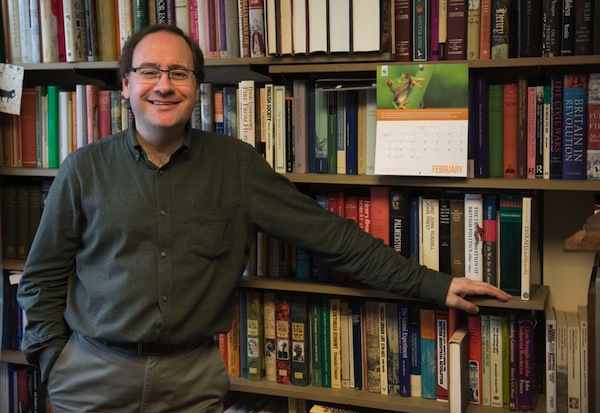It is perhaps inevitable that, at a time of polarized thinking, many people seem incapable of holding two ideas in their minds at once.
Canadian politics has maybe not succumbed to the depths of entrenched division we see in our neighbours to the south, where Democrat-versus-Republican has taken on a tribal identification. However, almost every democratic society is experiencing intense divisions not only in opinion but in identification. That is, our identities, including political stands, are prioritized to represent core personal traits. If we identify less as, say “a Canadian who votes for the Purple Party,” but instead as “a Purple Canadian,” it can feel threatening to have a conversation with someone of different opinions.
Social media is a significant driver of this phenomenon. Not only do the algorithms embolden and reify extremism, but we are encouraged to share these extreme opinions. Inflammatory ideas that we once might have kept to ourselves are posted for all to see – and, if someone disagrees, we may perceive it as a personal attack and feel encouraged to carry out an online vendetta. In times past, we may have suspected that our neighbour or relative held ideas we disagreed with. Now, we may know what our friends and neighbours think and feel about myriad issues – and we might be motivated to take them on in a virtual slugfest over those differences.
In theory, this is a good thing – but only in theory. In a perfect world, social media gives us the opportunity to engage one another in informed, enriching dialogue. Clearly, the joke’s on us.
In reality, social media reduces the quality of dialogue to a dismissive, insulting snapback. Moreover, the comparative anonymity of the platforms gives us licence to vent our worst impulses with few checks and balances embedded in the systems.
It is in this troubled online culture that the current war between Israel and Hamas is being addressed by Canadians.
The context is additionally challenged by recent changes to Canadian law. The federal government reasonably demanded that social media platforms pay news producers for the content shared on their platforms. In response, the platforms blocked the content rather than pay for it. A business can choose whether to retail what others are wholesaling, to use a clunky parallel. Of course, social media platforms are not just any business. It is fair to argue that they are a form of public utility and so should be governed by different standards. That, though, is a discussion for a different time. Bottom line is that Canadians are debating online over current events without the advantage of sharing professional news content, with predictable outcomes around reach and veracity.
Binary or polarized thinking plays another role.
Antisemitism, as any reader knows, is at levels most of us have not seen in our living memories. This is not incidental to the current war but, crucially, neither is the war the cause. Antisemitism lies in wait, depending on an external spark to set it aflame. Nothing Israel does (or, for that matter, anything Hamas does) is the cause of antisemitism in Canada. We need to address domestic bigotry for what it is. The purest proof: other international disputes rarely, if ever, result in eruptions of racism in Canada … why does this one?
In response to concerns around antisemitism, we see – usually online, because that is where these sorts of “conversations” happen most visibly – many people responding predictably. If there is antisemitism in Canada, a common theme goes, blame Israel’s actions or existence. A slightly more extreme variation makes the case that, at a time when it is alleged that Palestinians are experiencing genocide or ethnic cleansing, why are we wasting time talking about (the presumably relatively inconsequential matter of) antisemitism?
At a minimum, the response to such ideas should be that two things can be true at the same time. There may be unfolding tragedies in the Middle East … but there is also racism at home that demands addressing. And, no, one cannot wait until the other is resolved. Just as we should be capable of holding two ideas at once, we must be able to condemn injustice at home and abroad. Why is this difficult?
Binary thinking implies that injustice abroad displaces injustice at home. The message many of us see on social media is, put bluntly, Canadian Jews should keep quiet about their problems, complaints or experiences while Palestinians are dying.
Something we can keep in mind when engaging online, in real time, or however we participate, is that our activism on global affairs, including those places in which we have a personal stake, is vital and necessary. But it also has very limited impacts globally. The Israeli government, Hamas and the international entities engaged in what negotiations exist are, frankly, not going to be moved much by marching Canadians or millions of memes on social media. Those who are going to be affected are our neighbours and family, who see often harmful, hateful and insensitive comments and feel bereft, anxious and alone.
We need to keep in mind this: whatever we say about Israel-Palestine lands hardest on the ears, hearts and minds closest to us. Condemning Israelis or Palestinians (or anyone else) has minimal effect in Israel or Palestine. It causes plenty of pain right here at home.

